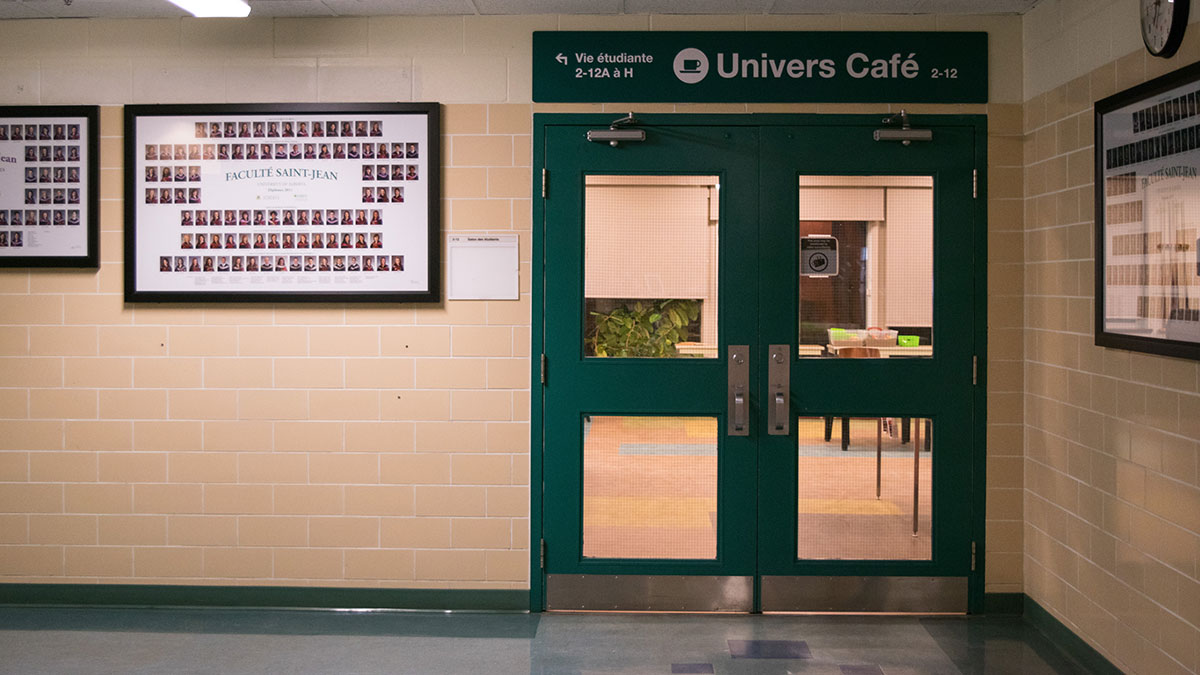‘Sauvons Saint-Jean’ campaign relaunch aims to defend French education against austerity
The campaign originally launched last year amid budget cuts that forced the University of Alberta’s French-language campus to decrease their course delivery by 44 per cent.
 Christina Varvis
Christina VarvisAn online campaign is calling for the community to take action in support of Campus Saint-Jean (CSJ), the University of Alberta’s French-language campus.
The “Sauvons Saint-Jean” campaign originally launched last year amid budget cuts that forced CSJ to decrease their course delivery by 19 per cent. Now, the campaign is highlighting that although the federal government has allocated $121.3 million for post-secondary institutions teaching French in a minority setting, CSJ is ineligible for this money without the Alberta government promising equal funds. The campaign is run in collaboration with Association canadienne-française de l’Alberta (ACFA), Alberta’s French Canadian Association.
In the summer of 2020, ACFA named both Alberta’s provincial government and the U of A as part of a lawsuit. The lawsuit claimed that the two institutions were not meeting financial obligations to support CSJ.
Chiara Concini, vice-president (external) of L’Association des Universitaires de la Faculté Saint-Jean (AUFSJ) and second-year political-science and history student, said that she will not be able to complete her degree in French because of the cuts to CSJ.
“The lack of funding affects students now,” she said. “It’s not a matter of this potentially being a problem in the future.”
She highlighted that those advocating for CSJ have been asking for help for a full year, but still “haven’t received anything.”
“We should be able to access [federal funding] because CSJ is a francophone post-secondary institution in an anglophone environment,” she said. “Obviously, there are difficulties associated with obtaining this access, and that’s what led us to kickstart the campaign again.”
With English as her first language, Concini said that pursuing bilingualism has always been important to her.
“There’s this perception, ‘well, the students speak English anyway so it’s not a big deal to have them take courses in English,’” Concini said. “When we have that mindset, we lose sight of the importance of multiculturalism in Canada.”
She said that increasing financial support for CSJ would affirm the greater values that a bilingual country claims to have.
“It’s more than just, ‘I like French and so I want to learn in French,’” she said. “’Sauvons Saint-Jean’ is about how this is a bilingual country, and students in Western Canada should have these rights.”
In addition to garnering attention over social media with the hashtags #SauvonsSauntJean and #SaveSaintJean, Concini said the campaign is hoping to partner with student groups across Canada, and that one of their major goals is to receive a commitment from the federal government to work with ACFA towards finding a way to access funding that won’t require an equal amount from the provincial government.
“CSJ needs money, and as students, that’s what we want to see,” she said. “We’re hoping to collaborate with both francophone and anglophone student groups to really come together and provide some student perspective about how issues relating to the availability of francophone education in Western Canada affect students.”
‘Sauvons Saint-Jean’ matters to those who are not francophone, Concini said
Concini said that she hopes that those in Canada who don’t speak French look into the issue of bilingualism in Canada and try to “understand the situation that CSJ finds itself in.”
“We do believe that it goes a lot further than just francophones, and specifically francophones in Alberta,” Concini said. “It affects all people.”
She argued that the actions advocated for by ‘Sauvons Saint-Jean’ are incredibly urgent.
“We have to ask ourselves: ‘when has it gone too far?’” she said. “When we start to see the erosion of the French language and French culture in Western Canada?”
“CSJ is a hub of la Francophonie (the French community) in Western Canada, and we need to protect it.”
A previous version of this article stated that 44 per cent of courses at Campus Saint-Jean were forced to close as a result of budget cuts. There was initially a threat of suspending 44 per cent of courses, but after negotiations, 19 per cent of courses were cut. The article was corrected to reflect this number at 10 a.m. on June 10. The Gateway regrets the error.




